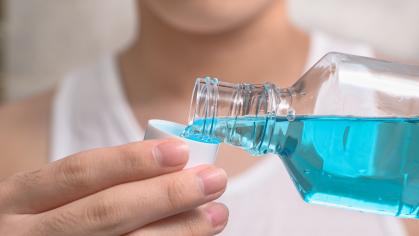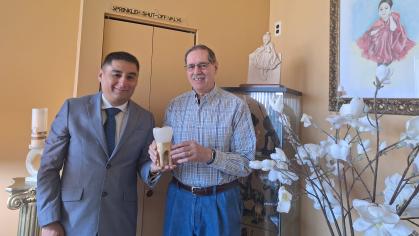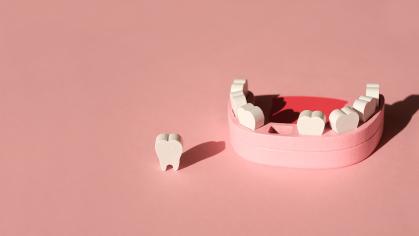Technology Meets Dentures
Getting dentures normally takes around five dentist visits. But Clinical Assistant Professor of Restorative Dentistry Hua Zhu can deliver them in only two appointments. And she can do them from anywhere, including from a kitchen table in her home country, China, where she made dentures for her aunt.
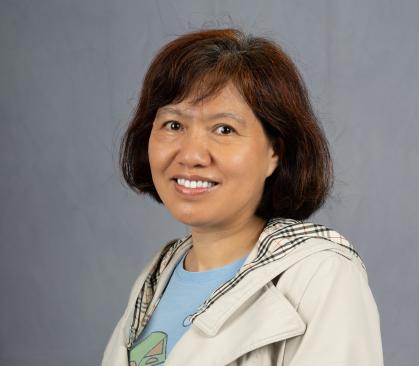
Zhu’s secret? A specially designed impression tray plus digital dentistry.
Her innovative approach grew out of her experiences with an 84-year-old patient who suffered a stroke and began grinding his teeth. “He ground so much so that he would need new dentures in a year and a half,” she said and wondered, “What can I do to replicate them again?” She began experimenting. She developed a 3D-printed thermoplastic resin tray with standardized tooth positions. When used with moldable material, the tray can capture tooth positions, bite relationships, and definitive impressions in a single visit. Then, she scans the impressions for the laboratory to make the dentures. One more visit and the patient gets their 3D-milled dentures, which offer a better fit than the traditional dentures.
“It saves a lot of time,” she said, “and works very well.”
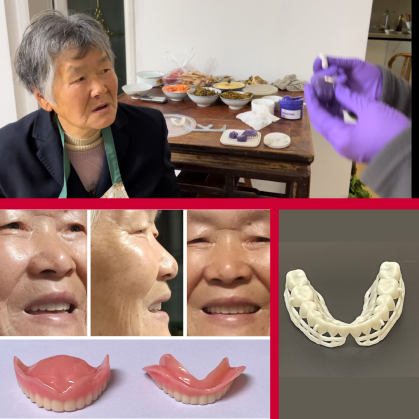
Zhu has a knack and a passion for research. After medical school in China, she came to Rutgers for her PhD in molecular biology. While doing cancer research, she realized she wanted to help people more directly. She recalled her dentistry class in medical school when her instructor made her dental composites, which changed her life. “I lived in an area in China with too much fluoride that caused enamel damage,” she said. “In wintertime, I couldn’t talk to people because of sensitivity.” Consequently, she often found herself hiding her smile. But after composites, that changed. “I could smile and talk,” she said. This was a life-changing event that piqued her interest in dentistry. However, it could not become a career-changing experience as veering to dentistry from medicine was tough in China, she explained. During her PhD at Rutgers, she revisited the idea and saw that it was a possibility. “I just felt that from my experience, I could be a really good dentist.” She attended Rutgers School of Dental Medicine (RSDM). She finished her program in 2004 and began teaching part-time immediately after.
Twenty years later, she aims to position RSDM as a leader in advancing digital dentistry through the school’s state-of-the-art Georges E. Sara Digital Dentistry Center. She is now teaching prosthodontics residents her denture-making methods while also developing educational videos and step-by-step protocols to be widely used at the school. “My goal is to put this in all schools,” she said. She also wants to improve the technology she uses to get a full-face scan for labs to produce even better dentures.
“People who need dentures are often underserved,” she said. “Many are older people needing dentures and counting on their caregivers to bring them in. With this, dentists can go to the elderly. So, this has a big public health aspect.”

